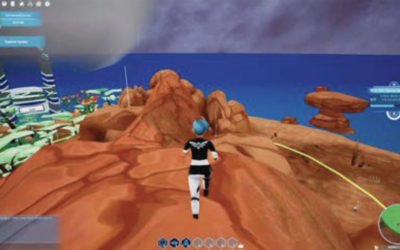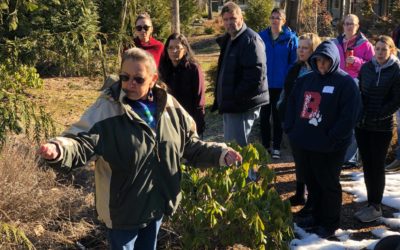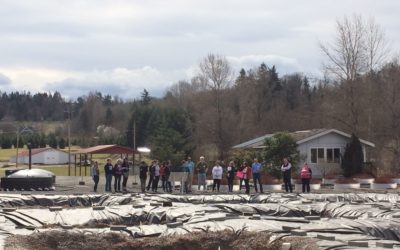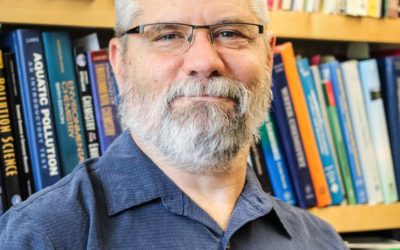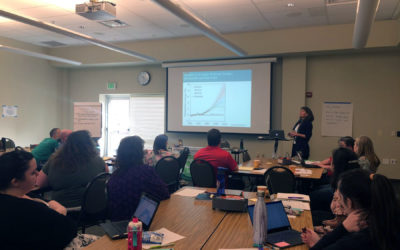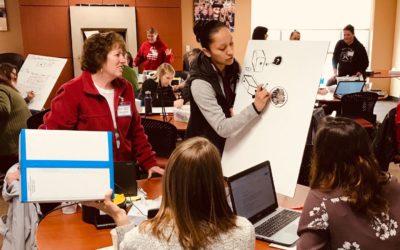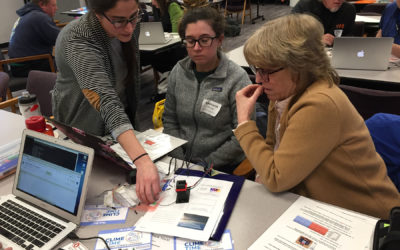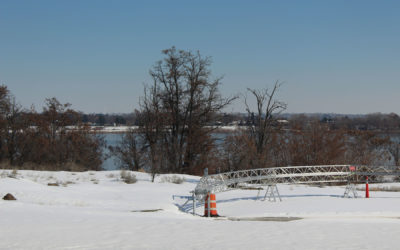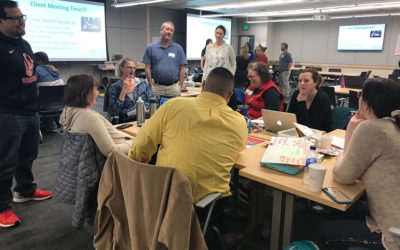Partner stories
These stories are a collection of educator professional learning experiences and opportunities provided by ESD, CBO and Tribal School partners.
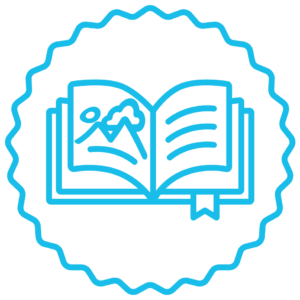
ClimeTime partners offer a variety of methods in supporting teacher professional development for climate education. These stories highlight partner successes in educating teachers across Washington state about the many ways in which climate science and the focus on local phenomena-based learning can engage both teachers and students.
By sharing these stories, ClimeTime hopes that educators, students, and anyone invested in rigorous and experiential science learning will be inspired to explore how they can engage with climate science in their region. ClimeTime values the work of Washington’s students, teachers, and community-based partners, and seeks to celebrate their commitment to engaging learning experiences.
Click on a story below to read more:
Empowering students to learn through hands-on problem solving — using a video game!
Working with Washington State to Increase Climate Literacy In partnership with NEWESD, Tyto Online developed a new Weather & Climate Module that includes Climate Change, focused on NGSS 6-8 standards, with an initial pilot showing a statistically significant 7%...
PEI-hosted workshop ‘Locally Relevant 3-D Climate Science Storylines’, held on March 2nd at the Squaxin Island Tribe Museum
Participants began the PEI-hosted workshop ‘Locally Relevant 3-D Climate Science Storylines’, held on March 2nd at the Squaxin Island Tribe Museum, on a trail next to a lake that the Tribe created to cultivate traditionally-used native plant species. There, Tribal...
Floods & Droughts
In ESD 121, on March 22, 2019, fourteen teachers gathered at the WSU Stormwater Center to learn about how climate is impacting floods and droughts in the region. Teachers received a tour of the campus fish lab where scientists explore the impact of stormwater...
Engaging educators with climate success stories
NCESD 171 hosted Environmental Chemist and Whitman Professor, Frank Dunnivant for a seminar and Q&A sessions with educators on Wednesday, March 20th. More than 50 attended the seminar to hear about the complex environmental issues people have successfully...
Species & Ecosystems
In ESD 113, on March 20th, 23 teachers learned about the climate impacts to keystone species like salmon and orcas. They read an article on the salmon/orca relationship, explored relevant data, and heard from Climate Change Coordinator for the Dept. of Fish and...
Science For Special Education
30 Special Education Teachers, Administrators, Para pros, Science, & STEM Teachers met at ESD 105 on March 14, 2019. Participants experienced a NGSS immersion experience, then made sense of guiding assumptions and principles from “A Framework for K-12 Science...
High school science teachers learn about climate science from UW School of Oceanography scientists
On March 5, 2019 high school science teachers participated in a one day workshop to learn the chemistry behind climate science and ocean acidification. UW School of Oceanography scientists lead the workshop. Modules included an overview of the chemistry behind climate...
Fire and Our Future with Washington Green Schools in Kennewick/Richland
20 K-12 teachers and Informal Science Educators met at The Reach Museum in Kennewick/Richland WA to learn from U of W geology and climate scientist Heidi Roop, PNNL ecologist and data scientist, Kyle Larson and WA Green School's Becky Bronstein to learn more about the...
Eastside Informal Science Educators Meeting
21 informal science educators from ESD 101 and ESD 123 met to learn more about climate science efforts in the region and state and their potential role in that work. Led by Elizabeth Schmitz, OSPI, Tammie Schrader, ESD 101 and Georgia Boatman, ESD 123 they spent the...

